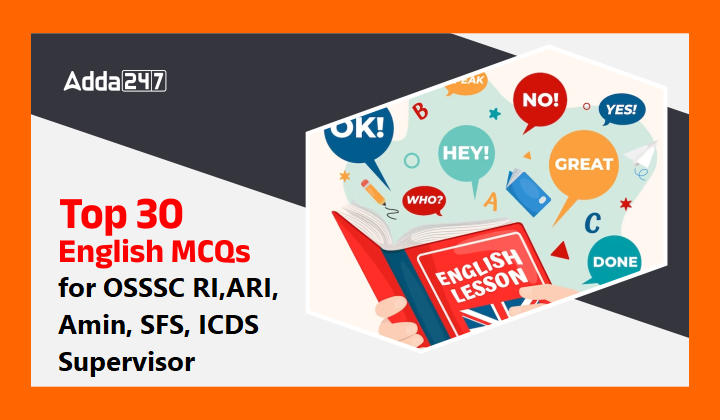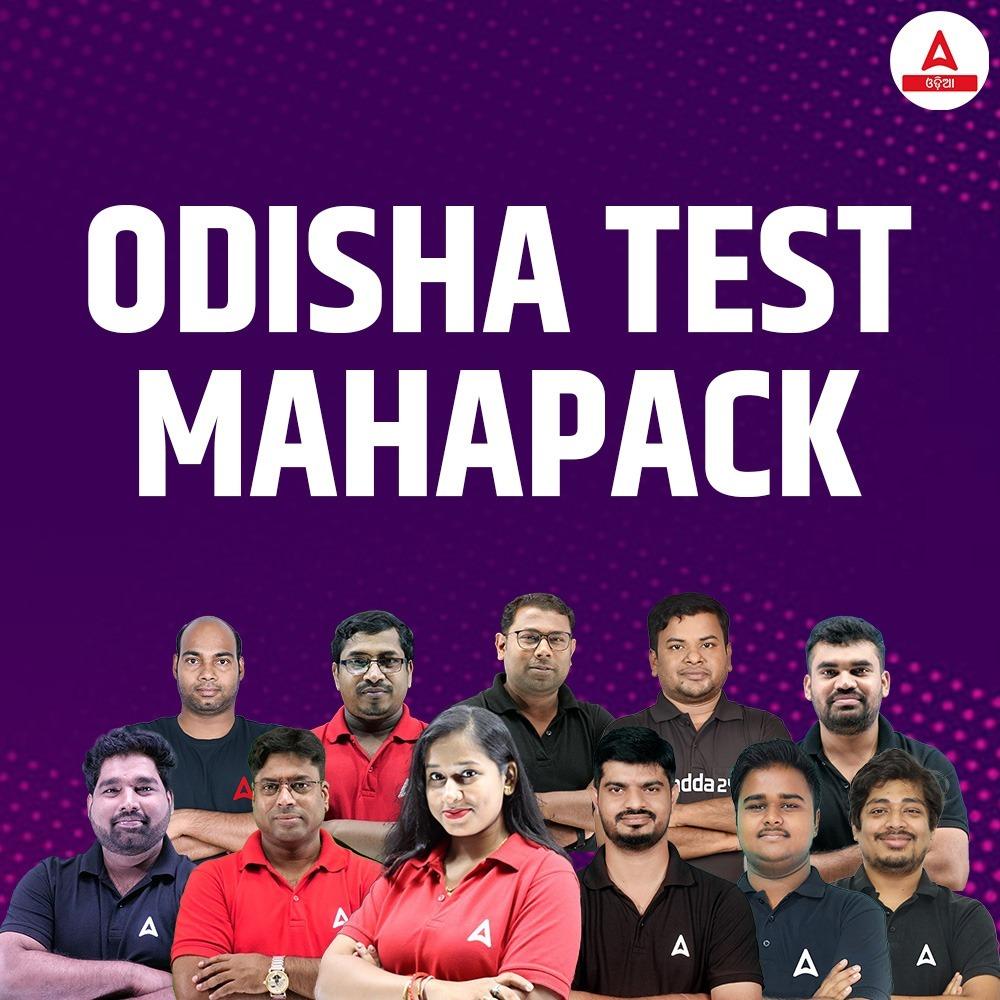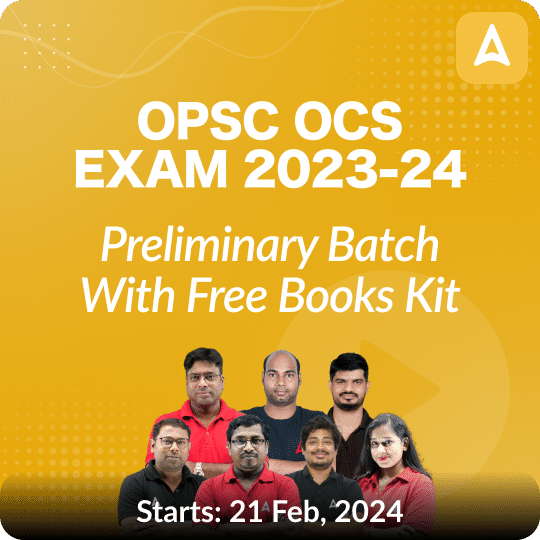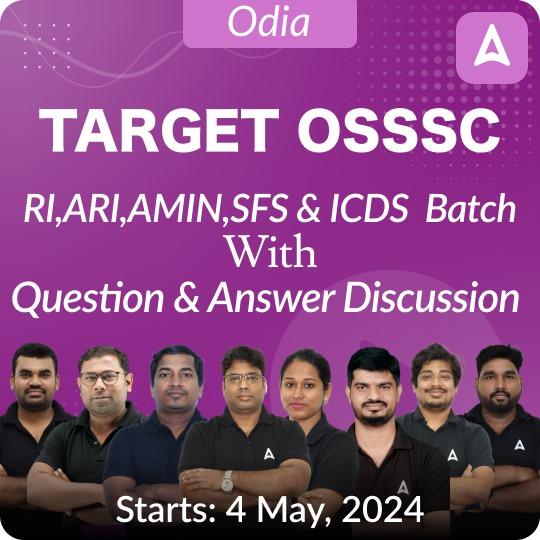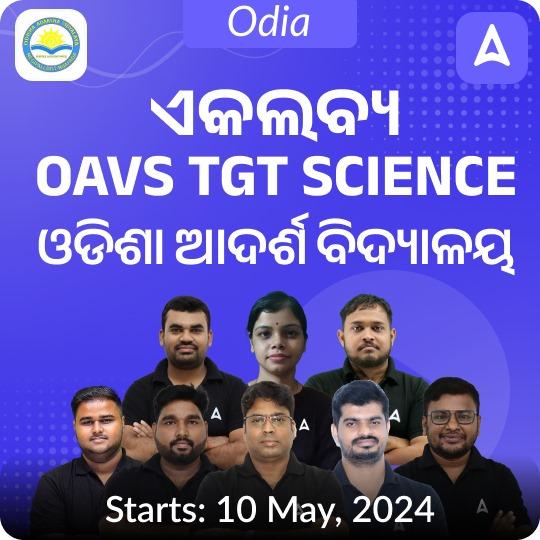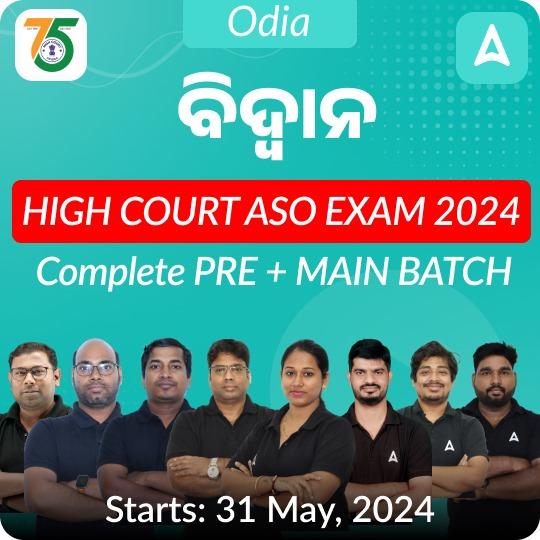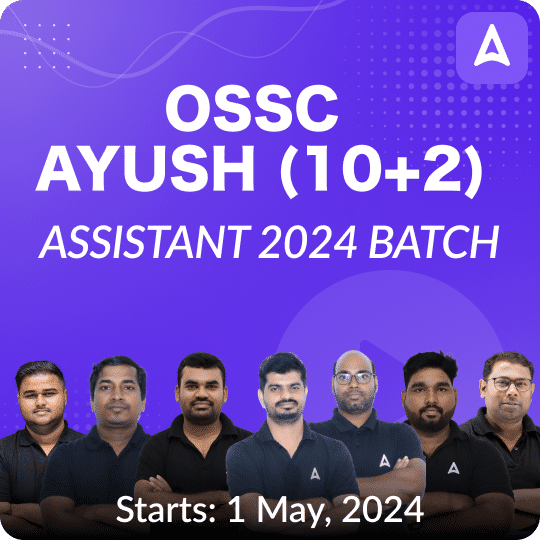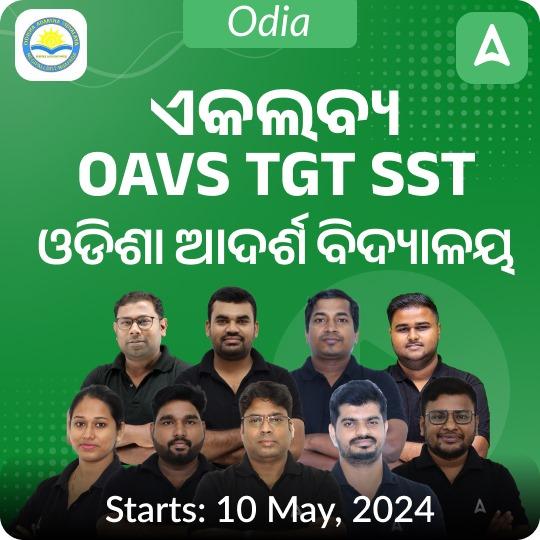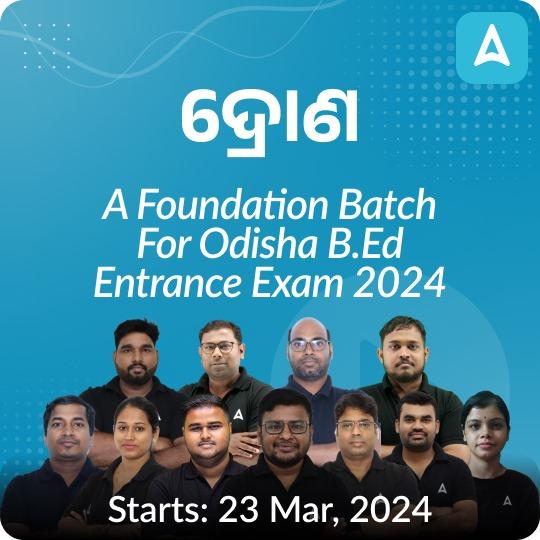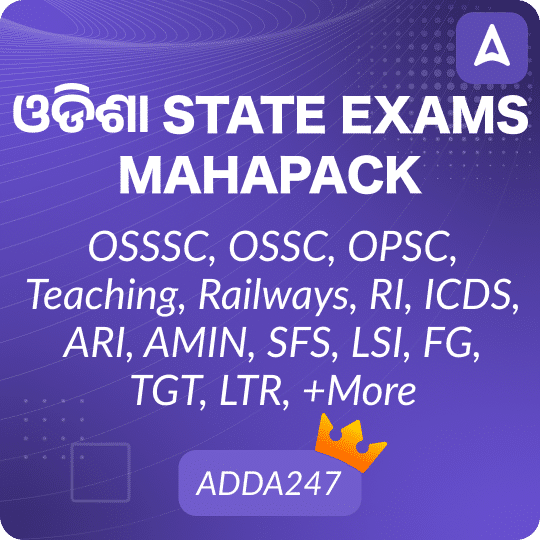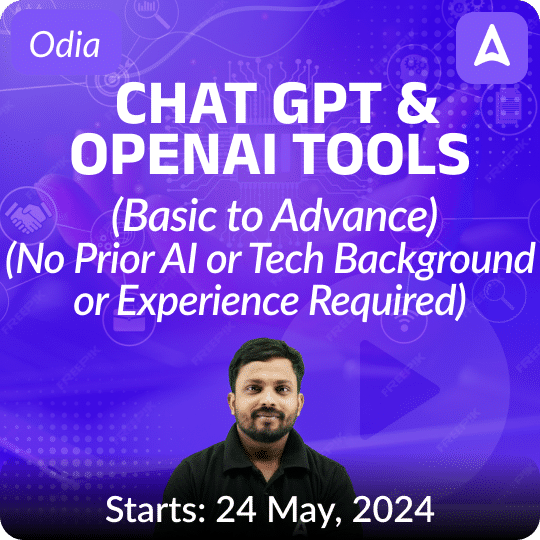These questions cover various topics from English providing a comprehensive review for aspirants preparing for OSSSC RI, ARI, Amin, SFS, and ICDS Supervisor exams. Practice these questions regularly to enhance your knowledge and boost your chances of success in these competitive exams.
Top 30 English MCQS For OSSSC RI,ARI, Amin, SFS, ICDS Supervisor 22 March 2024
Q1. Select the appropriate antonym of the given words.
QUERULOUS
(a) Confident
(b) Cheerful
(c) Firm
(d) Quarrelsome
S1. Ans.(b)
Sol. Querulous: complaining in a rather petulant or whining manner.
Cheerful: noticeably happy and optimistic.
Hence option (b) is the correct choice.
Q2. Select the appropriate antonym of the given words.
RESILIENCE
(a) Silence
(b) Buoyancy
(c) Rigidity
(d) Emptiness
S2. Ans.(c)
So. Resilience: the ability to be happy, successful, etc. again after something difficult or bad has happened.
Rigidity: the quality of being stiff, fixed, or impossible to bend.
Hence option (c) is the correct choice.
Q3. Select the word which means the same as the group of words given.
A person who is interested in the welfare of others.
(a) Philanthropist
(b) Misanthrope
(c) Misogynist
(d) Narcissist
S3. Ans(a)
Sol. The correct answer is (a) Philanthropist. It refers to a person who is interested in the welfare of others and donates money or resources to charitable causes.
(a) Philanthropist: A Philanthropist is a person who is interested in the welfare of others and donates money or resources to charitable causes.
(b) Misanthrope: A Misanthrope is a person who dislikes or distrusts other people.
(c) Misogynist: A Misogynist is a person who hates or has a strong prejudice against women.
(d) Narcissist: A Narcissist is a person who has an excessive interest in oneself and one’s physical appearance.
Q4. Select the word which means the same as the group of words given.
A building or room used for public worship.
(a) Auditorium
(b) Temple
(c) Sanctuary
(d) Tabernacle
S4. Ans(b)
Sol. The correct answer is (b) Temple. It refers to a building or room used for public worship and religious ceremonies.
(a) Auditorium: An Auditorium is a large room or building used for public meetings or performances.
(b) Temple: A Temple is a building or room used for public worship and religious ceremonies.
(c) Sanctuary: A Sanctuary is a sacred or holy place, often used for religious worship or as a place of refuge.
(d) Tabernacle: A Tabernacle is a temporary dwelling or a small portable shrine used for religious worship.
Q5. Select the word which means the same as the group of words given.
A person who believes that everything is predetermined and inevitable.
(a) Fatalist
(b) Pessimist
(c) Optimist
(d) Realist
S5. Ans(a)
Sol. The correct answer is (a) Fatalist. It refers to a person who believes that everything is predetermined and inevitable and that events are beyond human control.
(a) Fatalist: A Fatalist is a person who believes that everything is predetermined and inevitable and that events are beyond human control.
(b) Pessimist: A Pessimist is a person who always expects the worst and has a negative outlook on life.
(c) Optimist: An Optimist is a person who always expects the best and has a positive outlook on life.
(d) Realist: A Realist is a person who accepts and deals with things as they are in reality, rather than how they might be or should be.
Q6. Select the most appropriate antonym of the given words.
Dainty
- Undemanding
- Clean
- Beneficial
- Delicate
S6. Ans. (a)
Sol. The correct answer is option a.
Dainty -Hard to please.
Synonyms – Demanding, Exacting, Fastidious.
Antonyms – Undemanding, Unfastidious.
Q7. Select the most appropriate antonym of the given words.
Concise
- Accurate
- Wordy
- Empty
- Majestic
S7. Ans. (b)
Sol. The correct answer is option b.
Concise – Giving a lot of information in a few words; brief.
Synonyms – Brief, Crisp, Summary.
Antonyms – Verbose, Wordy, Exaggerated.
Q8. Rearrange the parts of the sentence in a correct order.
Some modern anthropologists hold
P: that biological evolution has shaped
Q: not only human morphology
R: but also human behavior.
(a) RPQ
(b) PQR
(c) RQP
(d) PRQ
S8. Ans (b)
Q9. Select the word which means the same as the group of words given.
A person who speaks two languages fluently.
(a) Linguist
(b) Multilingual
(c) Bilingual
(d) Polyglot
S9. Ans (c)
Sol. The correct answer is option c.
The word, ‘Omitted’ is spelt correctly.
Q10. Select the word which means the same as the group of words given.
A person who eats too much.
(a) Gourmand
(b) Glutton
(c) Epicure
(d) Gastronome
S10. Ans(d)
Sol. The correct answer is (d) Polyglot. It refers to a person who speaks multiple languages fluently, usually more than two.
(a) Linguist: A Linguist is a person who studies languages and their structure, history, and use.
(b) Multilingual: A Multilingual person can speak or use several languages, but not necessarily fluently.
(c) Bilingual: A Bilingual person can speak or use two languages fluently.
(d) Polyglot: A Polyglot is a person who can speak or use many languages fluently.
Q11. Select the appropriate antonym of the given words.
DIVULGE
(a) Reveal
(b) Hide
(c) Tell
(d) Inform
S11. Ans.(b)
Sol. Divulge: make known (private or sensitive information). Hence ‘Hide’ is the correct choice.
Q12. Select the appropriate antonym of the given words.
GRUDGING
(a) Wholehearted
(b) Reluctant
(c) Convincing
(d) Secretive
S12. Ans.(a)
Sol. Grudging: given or allowed only reluctantly or resentfully.
Wholehearted: showing or characterized by complete sincerity and commitment.
Hence option (a) is the correct choice.
Q13. Select the appropriate antonym of the given words.
DELETERIOUS
(a) Dilatory
(b) Harmless
(c) Being delicate
(d) Salubrious
S13. Ans.(b)
Sol. Deleterious: causing harm or damage.
Dilatory: slow to act.
Harmless: not able or likely to cause harm.
Salubrious: health-giving; healthy.
Hence ‘Harmless’ is the correct choice.
Q14. Select the appropriate antonym of the given words.
ACQUITTED
(a) Neglected
(b) Discharged
(c) Arrested
(d) Convicted
S14. Ans.(d)
Sol. Acquitted: to relieve from a charge of fault or crime.
Convicted: proved to be guilty of a crime by a court of law
Hence option (d) is the correct choice.
Q15. Select the word which means the same as the group of words given.
A person who is skilled in various arts.
(a) Erudite
(b) Versatile
(c) Aesthete
(d) Connoisseur
S15. Ans(a)
Sol. The correct answer is (a) Bibliophile. It refers to a person who is fond of books and loves collecting, reading, and studying them.
(a) Bibliophile: A Bibliophile is a person who is fond of books and loves collecting, reading, and studying them.
(b) Logophile: A Logophile is a person who loves words and language.
(c) Philatelist: A Philatelist is a person who collects stamps as a hobby.
(d) Lapidary: A Lapidary is a person who cuts, polishes, and engraves gemstones.
Directions (16-17): Each question in this section has a sentence with three parts labelled (A), (B) and (C). Read each sentence to find out whether there is any error in any part and indicate your answer in the Answer Sheet against the corresponding letter i.e. (A) or (B) or (C). If you find no error, your answer should be indicated as (D).
Q16. Priya got good grades (A)/not in Hindi essay (B)/but also in arithmetic. (C)/No error(D)
(a) A
(b) B
(c) C
(d) D
S16. Ans.(b)
Sol. “Not only ……but also” is used in a pair. Thus, in part (b) ‘not only’ should be used.
Q17. Soon as he (A)/saw the policeman, (B)/ he ran away. (C)/No error(D)
(a) A
(b) B
(c) C
(d) D
S17. Ans.(a)
Sol. “As soon as” is a conjunction which should be used here.
Q18. Those who are excessively careful (A) / for their health (B) / are not generally healthy. (C) No error (D)
(a) A
(b) B
(c) C
(d) D
S18. Ans. (b)
Sol. Replace ‘for’ by ‘of’.
Be careful with something that you are touching or carrying – something that is precious or, perhaps, dangerous if you mishandle it.
Be careful of something more distant. Something precious that you might bump into and damage, or something that might hurt you if you are not careful.
In context of People:
Be careful with someone who is emotionally fragile, someone you might hurt. OR … someone who might hurt you.
Be careful of that doesn’t sound right or Beware of.
Directions (19-20): Select the most appropriate meaning of the idiom given in bold in the given sentence.
Q19. Amit used to be very ill, but with rest and medication, he is now fit as a fiddle.
(a) To recover from injury.
(b) Be improving after an illness.
(c) In very good health.
(d) In good health despite health problems.
S19. Ans. (c)
Sol. The correct answer is option c.
Fit as a fiddle – It is an idiomatic expression which means, ‘In very good health.’
Option (c) portrays the same meaning as that of the given idiom & hence, it is the
correct choice.
Q20. He is working on his upcoming project in fits and starts.
(a) Without hope.
(b) Stopping and starting again many times, rather than progressing steadily.
(c) To act foolishly or inconsistently
(d) To make a supreme effort.
S20. Ans. (b)
Sol. The correct answer is option b.
In fits and starts – It is an idiomatic expression which means, ‘In short, inconsistent, and irregular intervals, as of motion or progress.’
Option (b) portrays the same meaning as that of the given idiom & hence, it is the
correct choice.
Directions (21-23): In the following questions, the 1st and the last part of the sentence/passage are numbered 1 and 6. The rest of the sentence/ passage is split into four parts and named P, Q, R and S. These four parts are not given in their proper order. Read the sentence/passage and find out which of the four combinations is correct.
Q21. Work with retarded children, in particular, involves superhuman patience and long – delayed rewards.
- Another woman faithfully spent two hours a day, five days a week, with a bed – ridden retarded girl.
- It was three years before the girl made her first cut in a piece of paper.
- The girl had never before responded to, or recognized anyone.
- One woman decided to teach a young brain – damaged girl how to use scissors.
- After five years, the girl finally began to smile, when her foster grandparents entered the room.
(a) PSQR
(b) RQPR
(c) RQSP
(d) SQPR
S21. Ans. (d)
Q22. He tried to open the door.
- The room was neat and clean.
- Then he stepped into the room.
- He waited for a minute or two.
- It opened easily and he peeped in.
- He was careful not to touch anything.
(a) PQRS
(b) QSPR
(c) RPQS
(d) SPRQ
S22. Ans. (d)
Q23. Frozen foods are so popular today that many people wonder how they ever lived without them.
- Near the North Pole, where the ground stays frozen all the year around, there is no problem of preserving foods.
- Actually, people who live in cool climates have had frozen foods for a long time.
- Ice helped them when they could get it, but they couldn’t get it very often.
- But people who live in warm climates have not always been able to keep food fresh.
- Now refrigerators and deep freezers preserve many foods that could not be kept any other way.
(a) PQRS
(b) QPRS
(c) QPSR
(d) SRQP
S23. Ans. (c)
Directions (24-27): In the following questions, a sentence has been given in Direct/Indirect speech. Out of the four alternatives suggested, select the one which best expresses the same sentence in Indirect/Direct speech.
Q24. Prime Minister Modi said to Indian Fencer Bhavani Devi “You Gave Your Best.”
(a) Prime Minister Modi told Indian Fencer Bhavani Devi that she had given her best.
(b) Prime Minister Modi said Indian Fencer Bhavani Devi that you Gave your best.
(c) Prime Minister Modi asked Indian Fencer Bhavani Devi to give her best.
(d) Prime Minister Modi told Indian Fencer Bhavani Devi that she must give her best.
S24. Ans.(a)
Sol. The correct answer is option a.
Direct Speech – Reporting the message of the speaker in the exact words as spoken by him.
The given sentence is an ‘Assertive Sentence.’
Assertive Sentence – Sentences that make a statement are called assertive sentences. These sentences may be positive, negative, false, or true statements.
While changing it into an indirect form, we consider following rules.
Reported Verb – ‘Said to’ changes ‘Told’.
Conjunction – In the assertive sentence conjunction, ‘that’ is used.
Tense – Simple past tense changes to Past perfect tense.
The sentence thus formed is – Prime Minister Modi told Indian Fencer Bhavani Devi that she had given her best.
Q25. He asked me, ‘Did you see the football match on TV last night?’
(a) He asked me if I saw the football match on TV the previous night.
(b) He asked me did I see the football match on TV last night.
(c) He asked me whether I had seen the football match on TV last night.
(d) He asked me if I had seen the football match on TV the previous night.
S25. Ans.(d)
Sol. The correct answer is option d.
The given sentence is ‘Direct Speech’.
Direct Speech – Reporting the message of the speaker in the exact words as spoken by him.
The given sentence is an ‘Interrogative Sentence.’
Interrogative Sentence – Sentences that ask questions are called interrogative sentences. Every interrogative sentence ends with a question mark. There are two main kinds of interrogative sentences. Those which start with an auxiliary verb and those which start with a question word such as what, why, when, where, how etc.
While changing it into an indirect form, we consider following rules.
Reported Verb – ‘Asked’ remains unchanged.
Conjunction – In the Interrogative sentence, conjunction ‘Whether/If’ is used.
Last night changed to The Previous night.
Tense – Simple past tense changes to Past perfect tense.
The sentence thus formed is – He asked me if I had seen the football match on TV the previous night.
Q26. Seema said to me, “Can you give me your pen?”
(a) Seema asked me can I give her my pen.
(b) Seema asked me if I can give me your pen.
(c) Seema asked me if I could give her my pen.
(d) Seema asked me if I gave her my pen.
S26. Ans.(c)
Sol. The correct answer is option c.
Q27. Pranab said to his friend, “The show began at five o’clock.”.
(a) Pranab told his friend that the show has begun at five o’clock.
(b) Pranab told his friend that the show had begun at five o’clock.
(c) Pranab told his friend that the show will begin at five o’clock.
(d) Pranab told his friend that the show was begun at five o’clock.
S27. Ans.(b)
Sol. The correct answer is option b.
Direct Speech – Reporting the message of the speaker in the exact words as spoken by
him.
The given sentence is an ‘Assertive Sentence.’
Assertive Sentence – Sentences that make a statement are called assertive sentences. These sentences may be positive, negative, false, or true statements.
While changing it into an indirect form, we consider following rules.
Reported Verb – ‘Said to’ changes to ‘Told.’
Conjunction – In the Assertive sentence conjunction ‘That’ is used.
Tense – Simple past changes to Past perfect tense.
The sentence thus formed is – Pranab told his friend that the show had begun at five o’clock.
Directions (28-30): In each of the following sentence, there are two blank spaces. Below each sentence, there are five options and each blank is to be filled with the same word given below to make the sentence correct. Fill up the sentences with the correct word.
Q28. (I) He ……….. his last remaining strength, took hold of his left hand with his right, and reached the bushes.
(II) Lethington was to be tried, but his armed friends ……… in great numbers, and, secure in the castle, he and Kirkcaldy upheld the cause of Mary.
(a) contributed
(b) approached
(c) formed
(d) mustered
S28. Ans.(d)
Sol. mustered- gathered
Q29. (I) She ………. into the food on her plate, discovering that Brandon wasn’t bragging about his mother’s cooking.
(II) She shivered despite her lamb’s wool coat, her hands ……….. deep into pockets that contained weapons.
(a) hidden
(b) drowned
(c) sank
(d) plunged
S29. Ans.(d)
Sol. plunged– the act of submerging
Q30. (I) Let every one mind his own business, and ……….. to be what he was made.
(II) Do not stay to be an overseer of the poor, but ……….. to become one of the worthies of the world.
(a) endeavor
(b) enthusiasm
(c) strife
(d) attempt
S30. Ans.(a)
Sol. endeavor– efforts

